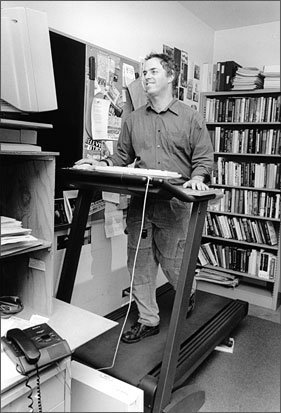The Unreasonable Effectiveness of Self-Experimentation
Alexandra Carmichael
May 31, 2010
 It all started when Seth Roberts wondered why his self-experiments were so effective.
It all started when Seth Roberts wondered why his self-experiments were so effective.
Over 12 years, this psychology professor and regular at Quantified Self meetups tested new ideas, observed himself, and learned a number of significant things – new theories about mood, weight loss, sleep-wake cycles, and daily habits necessary for optimal living.
Seth’s exploration of why his self-experiments work so well is now in press for the journal Medical Hypotheses. You can read the full text here, and here’s an abstract:
Over 12 years, my self-experimentation found new and useful ways to improve sleep, mood, health, and weight. Why did it work so well? First, my position was unusual. I had the subject-matter knowledge of an insider, the freedom of an outsider, and the motivation of a person with the problem. I didn’t need to publish regularly. I didn’t want to display status via my research. Second, I used a powerful tool. Self-experimentation about the brain can test ideas much more easily (by a factor of about 500,000) than conventional research about other parts of the body. When you gather data, you sample from a power-law-like distribution of progress. Most data helps a little; a tiny fraction of data helps a lot. My subject-matter knowledge and methodological skills (e.g., in data analysis) improved the distribution from which I sampled (i.e., increased the average amount of progress per sample). Self-experimentation allowed me to sample from it much more often than conventional research. Another reason my self-experimentation was unusually effective is that, unlike professional science, it resembled the exploration of our ancestors, including foragers, hobbyists, and artisans.
Here’s to the power of self-experiments, and self-experimenters!


